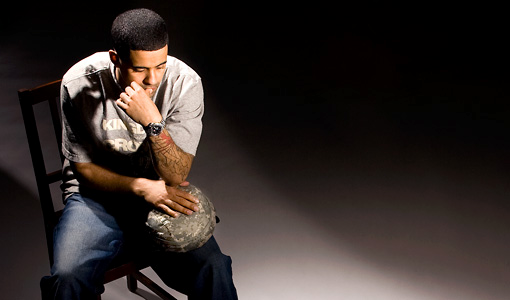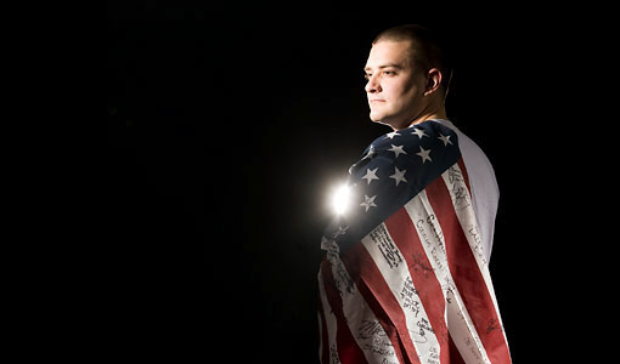Stories of war and peace and Tommies are as old as this institution. Even older.
In October 1862, long before there was a St. Thomas, a young priest by the name of John Ireland was in Corinth, Miss., serving as chaplain to the 5th Minnesota Infantry Regiment. As the Civil War battle of Corinth raged, “when the cry was raised that the ammunition was failing, he was seen hurrying down the lines, heedless of the bullets flying around him, carrying a supply of ammunition and crying: ‘Here are your cartridges, boys, don’t spare them.’” [1]
In the years of peace that followed, Ireland went on to become an archbishop and, in 1885, founded the College of St. Thomas. His story is but one of thousands that could be told about Tommies and their experiences in war and peace.
More than 120 years later, veterans of war are again returning to our campus. The buildings have changed, the times have changed, but the stories remain.
The exact number of veterans on campus is difficult to determine. According to the Office of the University Registrar, 42 undergraduates received Veterans Administration benefits (including dependents) this spring, as did another 20 graduate and law students. There may be others whose benefits have expired or have not been claimed.
But this much is certain. They, too, have stories to share. Three are on the pages that follow, and more can be read online. Mike Petrin, Marine Corps; Jesse Kelley, Army; and Suzzanne Harwood, Air Force Reserve, are featured. (Petrin, ironically, carried ammunition to frontline troops much as Ireland did.)
They served their country in time of war, and they’ve found peace on campus.
Mike Petrin, Marine Corps, Iraq
(Top Photo)
Pre-dawn in Kuwait. Sgt. Mike Petrin, U.S. Marine Corps, doesn’t know it yet, but Operation Iraqi Freedom is about to be launched. Positioned with the 5th Marines near the Kuwait-Iraq border for about a week, the roar of jets and helicopters was a familiar one.
“We heard a sound that came flying overhead, which we thought was another jet,” Petrin, 21 at the time, recalled.“All of a sudden while we were playing cards we heard this loud explosion within 500 yards. It was the first indirect fire from Iraqi artillery.”
A few hours later the border was breached, and he was headed north with an initial mission of protecting the Iraqi oil fields from sabotage.
Petrin’s role during the assault was “very stressful” as a noncommissioned officer in charge of resupply, running convoys of ammunition from various stock-piles to the front lines, and sometimes running the gauntlet in what he called RPG Alley.
A student here since summer 2007, the Goffstown, N.H., native wears different uniforms today. He is a public safety officer at the University of St. Thomas and a staff sergeant in the New Hampshire Air National Guard. Oh yes, he’s also a criminal justice major at St. Thomas.
It’s been a “good experience.” He likes the community and he’s anxious to take more courses in his field of study. “I think I have a lot to bring to the table,” he added. “When people find out that I was in the Marines it’s usually a complete surprise, because I’m usually a laid-back person. I’m not loud or a shouter. I definitely don’t fit the stereotype of a Marine sergeant.”
 Jesse Kelley, Army, Afghanistan
Jesse Kelley, Army, Afghanistan
Jesse Kelley, an Army veteran with eight months in Afghanistan as a signals intelligence analyst, is on a mission – this time at St. Thomas. He needs to complete four years of schooling in three and a half years to earn a commission as an officer in the Army. As part of the Army’s Green to Gold program, the 27-year-old freshman needs to graduate by December 2010 to meet the program’s cutoff age.
The Twin Cities native joined the Army in February 2003. “At that point in my life I was doing a lot of music, which was great,” Kelley said. “It was fun, but I felt like I wasn’t going anywhere.” He was looking for “something more.”
He definitely found it working with the Green Berets of the Third Special Forces Group in Afghanistan. He served in Afghanistan from August 2005 to April 2006, based at Bagram Air Base. A sergeant, he was the noncommissioned officer in charge of the night shift for his unit.
“We would look at people we thought were Taliban-related and try, basically, to build a case based on our specific intelligence field as to why they were bad, where they hung out, who their friends were, and if they had attacked and killed any American or coalition forces,” he explained.
After five years of service, he left active duty in August 2007. A week later he was back in school full time for the first time in nearly 10 years. The adjustment was “huge.”
“I had taken a few classes here and there while I was in the military, but it was kind of a dual adjustment from military to civilian life, and also from not being a student to being a student,” Kelley remarked. “Rebuilding those study habits was pretty difficult.”
He chose St. Thomas because it’s a “great school, and I wanted to come home for school.” When classmates find out he served in Afghanistan, they are “very respectful of not prying too much, but they’re also very interested, which is cool.”
 Suzzanne Harwood, Air Force Reserve, Southwest Asia
Suzzanne Harwood, Air Force Reserve, Southwest Asia
Forty-four-year-old Suzzanne Harwood might be described best as a nontraditional nontraditional student. Like most older master’s degree candidates, she brings real-world experience into the classroom, only her real-world experience includes 14 years of military service – Air Force, Army National Guard and Air Force Reserve. She has traveled to more than a dozen countries while on active duty, including service in southwest Asia (she cannot disclose where) from March to May 2007.
Harwood enlisted in the Air Force in 1981 while still in high school. “I wanted the adventure and the excitement,” she said. “I worked directly on the planes as a communications avionics technician, so I really liked that.” She was first stationed in England and worked on A-10 Warthogs. Later, she transferred to Scott Air Force Base in Illinois and worked in the secure satellite air-ground communications field.
Harwood left the Air Force in 1987. She worked as an electrician for TWA, earned a bachelor’s degree from Winona State University, taught, raised two sons with her husband, Gordon, and, not too surprisingly, enlisted in the Army National Guard. Two years later she transferred to the Air Force Reserve.
Today, she serves full time in the Air Force Reserve with the 934th Airlift Wing, based at Minneapolis-St. Paul International Airport, and is working on a Master of Arts in Special Education-Autism Spectrum Disorders at St. Thomas. She expects to graduate this fall and would like to focus on helping adults such as herself who have children with autism.
“The military is a very disciplined organization. I think that helps you be disciplined and organized, and I’m really proactive, and I think part of it is that I’m older,” Harwood remarked.
Being one of the oldest students in class doesn’t bother her; she notes with a laugh that she brings “more years of wisdom – more life knowledge” to the classroom.
Mick Conlan, Marine Corps, Iraq (two tours)
Capt. Mick Conlan gave up his dream of playing blues guitar and joined the Marine Corps. He served from 2003 to 2007, with two tours in Iraq, and now is a first-year student at the University of St. Thomas School of Law.
He sees parallels between his service and law school. After graduating from the Marine Corps’ Basic School for officers at Quantico, Va., he was tasked to help develop a new signals intelligence battalion that would deploy to Iraq. As a student at the new School of Law, he hopes to influence the way it, too, is being built.
“I saw a lot of parallels to the first battalion I started at – something that was being built from the ground up, and I wanted to be a part of that because it was brand new, and I think a lot of early influences can dramatically change the way that an organization goes,” said Conlan, 27, who grew up in St. Paul’s Highland Park neighborhood. “So I thought I would be a part of something that’s new and hopefully influence it for the better, and meet some of the people who are going to help shape the school for the next couple hundred years.”
Conlan served two tours in Iraq with the intelligence battalion he helped shape, and he extended his service contract six months to enable him to go on the second tour.
“Part of it was the mission, and a big part of it was the Marines that I was with and in charge of and wanting to make sure they were taken care of,” Conlan explained.
His first tour in 2006 centered on the town of Fallujah, site of two large battles in 2004. “My job was basically to collect up all the intelligence from the field, analyze it, build target packages, and get it to the commanders who were out there as soon as possible.”
Conlan’s 2007 tour centered on the town of Ramadi, capital of the notorious Al Anbar province. “I’m in Ramadi,” Conlan recalled, “and Ramadi is just a complete hellhole, and they were lighting off chlorine IEDs the day we got there, and I’m thinking to myself – What the hell did I get myself into?”
That fall, however, tribal leaders of the province organized the Anbar Awakening to fight Al Qaeda rather than Americans and their Iraqi supporters."
Conlan misses his Marine Corps buddies, but law school has been a good experience.
“I go to school with some really smart people, and it blows my mind,” he said. “A lot of the time I’m just kind of sitting back and watching these really smart kids work through a lot of this stuff, and I try to contribute where I can, but sometimes I think, damn, these are really smart kids. Why am I here?
“But I think everybody goes through that their first year. But it’s a great school. The professors are great, and what I was hoping was going to be there is there.”
Justin Ollerich, Marine Corps, Afghanistan
Like many high school graduates, Sgt. Justin Ollerich wasn’t sure what he wanted to do. He didn’t think he was ready for college. He had an interest in the military though, and he wanted to see the world – so he enlisted in the U.S. Marine Corps.
His five years in the Marine Corps as a helicopter mechanic took him overseas twice – to the horn of Africa with the fleet Marine force for six months in 2002 and to Afghanistan for seven months in 2004.
Ollerich was stationed at Afghanistan’s Kandahar Airfield from February to September 2004. He described Kandahar as “high-plateau desert.” Daytime temperatures could soar to 125 degrees.
Shop repairs included replacing hydraulic parts, and lubricating and cleaning the CH-46 Sea Knight helicopters. “We only had a few incidences of bullet holes that needed to be repaired,” he said. The airfield experienced only a few rocket attacks while he was there.
“I learned a lot about myself and what my limitations were,” Ollerich said of his five-year hitch. “I learned a lot about professionalism and perseverance in the face of – not to be overly dramatic – but in the face of things that don’t look like they can be done.”
His enlistment ended in 2004 and he started at St. Thomas in fall 2005.
“When I was in the Marine Corps I tried to do my best to practice my faith,” recalled Ollerich, a Catholic studies major who calls Sioux Falls, S.D., home. “That was a big part of keeping me sane through some of the harder times – the lonelier days, the times when things weren’t going so well. A lot of people asked me about it, and there were a lot of questions I couldn’t answer about my faith, so I liked the idea of a Catholic, liberal arts college education that would educate me a little better about faith and why Catholics believe what they believe. And the whole idea of a liberal arts education in the Catholic tradition kind of romanced me a little bit.”
Ollerich, 27, said he has never felt uncomfortable or estranged on campus, although he finds himself asking more questions in class than do younger students.
“That made me stick out, but I never felt awkward,” he said. “I like the environment of having a bunch of younger people interested in learning – especially Catholic studies things – people having a lot of questions and learning a lot about philosophy and theology. I never felt out of place as far as my age went. I think a lot of people are interested in my experiences, and that kind of made me feel special.”
Ollerich expects to graduate in spring 2009, and, with one summer of OCS training already completed and the second coming up this summer, he may seek a commission in the Marine Corps. If he goes that route, he’d like to fly helicopters.
And as for school, “I love St. Thomas,” Ollerich remarked. “It’s a great school. I tell everybody I can who is thinking of going to college after high school – ‘Go to St. Thomas.’ I’ve really had a good experience here."
Ben Kallas, Marine Corps, Operation Iraqi Freedom
Cpl. Ben Kallas never envisioned himself going to college. He had always wanted to be a U.S. Marine, a title he earned in 1999, and maybe even make a career out of it.
His education was extensive just the same – anti-tank assault weapons, demolitions and security force training. By 2003 he was 22 and a corporal stationed in Kuwait with the 2nd Bn., 1st Marines, part of the 15th Marine Expeditionary Unit (MEU). A month and a half later he was boots on the ground in Operation Iraqi Freedom.
A MEU is designed to operate for 30 days as a self-contained, self-supporting unit. Between Kuwait and Iraq, his unit did that for more than 60 days, helping secure southeastern Iraq.
Kallas’ unit faced regular army troops their first couple of days in Iraq, but afterward met less resistance from troops that had been forced into service just a few days earlier and with little training.
“Southern Iraq was just dilapidated,” Kallas said. “It was basically second world. The only reason it was even that is because there was some electricity and some plumbing. Other than that it was pretty awful.”
Kallas didn’t need a combat tour to become convinced of the need for an education, however. He realized that shortly after he joined the Marines.
“What really opened my eyes was my first year in the Marines,” he said. “I realized that no matter what rank you were, as long as you were enlisted – you could have 28 years in and be Sgt. Major of the Marine Corps and there could be a lieutenant with a year’s worth of experience and he could tell you what to do. … So I figured if I was really going to make a career out of it, which I thought about many times, that I would be best off going to school, getting an education and then going back in.”
He has decided not to make the Marines a career, however. He’s started a new life and plans to marry. “I know what the family life is like for Marines, and I know that with what I would want to do I wouldn’t be able to have a family life that my wife would deserve,” Kallas said.
After a year and a half at a community college, he transferred to St. Thomas to study business. A senior, now 27, he’s majoring in accounting.
“I came to school with an intention of letting everybody know exactly who I am, where I’ve been and what I’ve done, but as time has gone on I don’t focus on that anymore,” Kallas remarked. “I don’t really care that other individuals know everything about me.”
“I have noticed here at St. Thomas, though, that a different part of my life has started to take shape – and that’s the educational side,” he added. “That’s the side, too, of the future that lies beyond. And it’s kind of helped me not to focus on the past so much but the future and what I have left to accomplish.”
[1] The Life of Archbishop John Ireland, by James H. Moynihan, Harper & Brothers Publishers, New York, 1953.







